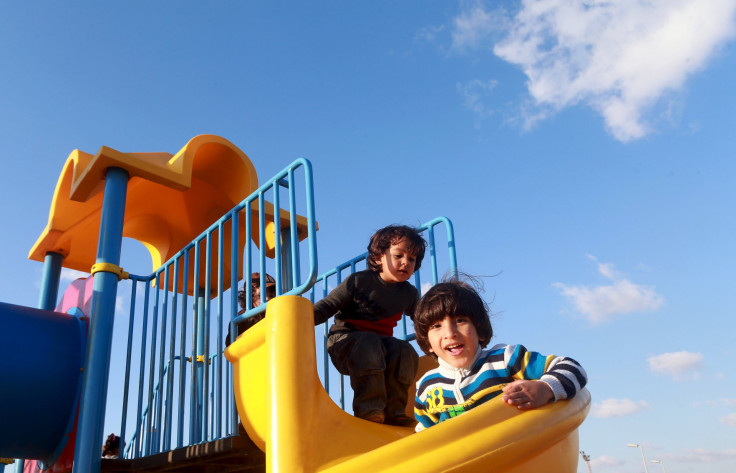Playing outdoors may improve kids’ eyesight

Children are often encouraged to spend more time outdoors, and based on a study, there’s a new reason why: it lowers their risk of becoming nearsighted. While the association between spending time outdoors and children’s eyesight is not clear, the researchers suggest that the higher levels of light intensity found outdoors may increase the release of the chemical dopamine from the retina of the eye. Dopamine is known to inhibit the type of growth in the eye that is associated with myopia, the medical term for nearsightedness.
In the study conducted by researchers from Zhongshan Ophthalmic Center in Guangzhou that included about 1,900 schoolchildren in China, those who were instructed to spend more time outdoors over three years were found to be 23 percent less likely to develop nearsightedness than those who stayed inside. The researchers also discovered that among the kids who became nearsighted during the study, the degree to which their eyesight worsened was slightly smaller than those who spent more time outdoors.
To conduct the investigation, the researchers chose children whose average age was 7 years old and asked them to attend one additional 40-minute class of outdoor activities during each school day for three years. The parents of these children were also encouraged to engage their children in outdoor activities after school, especially during weekends and holidays. Another group of kids were instructed to continue their usual activity patterns. After three years, the research found that 30.4 percent of the kids in the intervention group had become nearsighted, which is less than 38.5 percent of the kids in the control group.
According to the researchers, the reduction in the risk of nearsightedness is important because children who develop nearsightedness at a young age are most likely to develop worse myopia later on. “A delay in the onset of myopia in young children, who tend to have a higher rate of progression, could provide disproportionate long-term eye-health benefit,” the research claims.
The study’s lead author, Dr Mingguang He of the Zhongshan Ophthalmic Center in Guangzhou, says that while the analysis was conducted in China, the results will likely apply to children elsewhere, too. He cited previous research that suggested “the protective effect of outdoor time in Australia and United States on children of European ancestry.”
He also recommends that children increase their outdoor time to maximise its benefit, such as using school recesses and encouraging parents to bring kids outside on weekends. However, he notes the importance of protecting the kids’ skin and eyes from UV light, which can be damaging. According to the American Academy of Pediatrics, children should stay in shaded areas when possible, wear a hat or cap and use broad-spectrum sunscreen.
Contact the writer at feedback@ibtimes.com.au or tell us what you think below.





















